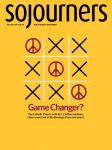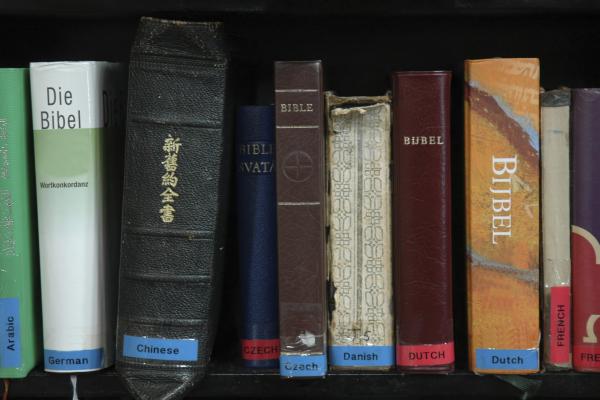'WE CAN JOYFULLY anticipate an abundance of cultural differences and varied life experiences among the participants in the Rome Conference,” wrote Pope Francis in his welcome letter to the Nonviolence and Just Peace gathering in Rome, “and these will only enhance the exchanges and contribute to the renewal of the active witness of nonviolence as a ‘weapon’ to achieve peace.”
Nowhere were the “cultural differences” and “varied life experiences” more conspicuous than in the conversation about whether there is ever a Christian justification for armed force.
U.S. and Western European academics are thoroughly trained in the theory, theology, and application of just war theory. It’s taught in U.S. and European seminaries. It’s taught in all military academies. It provides a framework for international law.
In stark contrast, Catholics living in Iraq, Sudan, Uganda, Afghanistan, Syria, Congo, Sri Lanka, and other war-torn countries are not schooled in just war philosophy. It is not part of training for priests or academics or those in political life. When people from war-ravaged regions talk about “just war,” they speak from the experience of having been on the receiving end of “morally acceptable” drone strikes. They make a powerful argument for a paradigm shift away from just war thinking.
In regions of civil unrest, some said, where religious extremism is used as propaganda to advance partisan military and political objectives, even associating the language of “just war” with Catholicism can categorize Catholics as “combatants.”
In the case of Colombia’s brutal, 52-year-long civil war, Jesuit priest Francisco De Roux described how just war teaching misled Catholics into taking up arms.
“In my Catholic country,” said De Roux, “our nuns and priests join the guerillas because of the just war paradigm. The Catholic paramilitaries pray to the Virgin before slaughtering people because of the just war paradigm.”
It became clear through encounter, questions, clarifications, and dialogue that Western Catholic seminaries teach just war as the nearly exclusive framework on war and peace issues. Seminaries in the majority world are much more likely to turn to nonprofits and secular sources to learn about conflict resolution, large-scale peacekeeping, and social movement organizing.
This disparity might reflect the historical roots of the just war tradition itself as a set of criteria developed by powerbrokers—political, military, and ecclesial—for powerbrokers, not by the vast populace directly affected by war.

Got something to say about what you're reading? We value your feedback!

